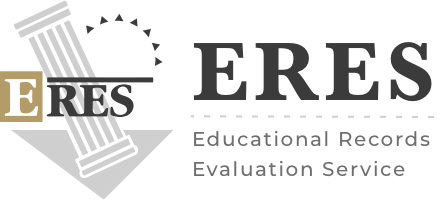In recent years, the arena of higher education has undergone drastic changes. The advent of online and hybrid degree programs has transformed from niche offerings to mainstream educational pathways, which have opened vast opportunities for learners globally. These flexible programs have transcended traditional education barriers for international students and working professionals and make quality degrees more accessible.
Key Takeaway
Online and hybrid degree programs allows individuals to earn credentials from global institutions while maintaining their careers and saving on traditional study-abroad costs. This article explores how these flexible learning models work, the diverse program options available across disciplines, and the financial advantages they provide. Examining important considerations including the self-discipline required for success, challenges such as networking limitations and technical requirements, and the critical role of credential evaluation services in ensuring international degrees will also be discussed as they are essential requirements for employment, licensing, and further education opportunities across borders.
Understanding Online and Hybrid Learning Models
Online degree programs bring in coursework done through digital platforms. This allows students to complete their studies wherever they are as long as there is internet access. Meanwhile, hybrid programs, also known as blended learning, combine online instruction and face-to-face sessions, which balance traditional and fully remote education.
Both of these models highly utilize technology to deliver interactive learning experiences. By means of learning management assignments, students participate in virtual lectures, engage in online discussions, collaborate on group projects, and submit assignments. Hybrid programs, on the other hand, incorporate periodic campus visits to use laboratories, workshops, or intensive sessions, while maintaining overall flexibility.
Breaking Down Geographic Barriers
Transcending geographical barriers is the most significant advantage of the aforementioned programs for international learners as they pursue degrees from institutions worldwide. The need to obtain student visas and secure houses in bustling, expensive cities is also eliminated as they stay uprooted in their area of residence.
This mode of flexibility offers accessibility that is particularly advantageous for professionals who aim to advance their education while maintaining their careers. For instance, a marketing manager in Singapore can earn a master’s degree from a European university, all the while he is working full-time. A healthcare professional in Nigeria can also pursue specialized certifications from North American institutions without pausing on her career through study leave. Furthermore, students in different time zones can access recorded lectures and complete coursework on schedules that accommodate their local contexts.
Diverse Program Options for Every Field
The online and hybrid offerings in today’s age span across every academic discipline. It is widely available in business administration, information technology, healthcare, education, and engineering programs. It is also applicable in specialized fields such as data science, cybersecurity, and public health.
Many institutions offer complete degree pathways online, ranging from undergraduate certificates to doctoral programs. Professional programs include MBAs, Master of Public Health degrees, and various technology-focused master’s degrees have seen intensive growth in online formats.
In terms of the quality of these programs, institutions have made sure they have improved significantly. Accredited institutions retain the faculty who teach on-campus courses in order to maintain rigorous academic standards as well as to provide comprehensive student support services adapted for remote learners.
Challenges and Considerations
Although there are numerous advantages or this mode of learning, the online and hybrid programs still poses challenges. First, students must uphold strong self-discipline manage time to succeed in the absence of structured schedule of regular classroom set-up. Second, the lack of in-person networking opportunities brings in disadvantage especially for those seeking career connections in specific industries.
Third, the technical requirements include a reliable internet access and appropriate devices remain a challenge barriers in some areas. Fourth, the time zone differences seem manageable yet can pose barriers in live virtual sessions and group collaboration.
Lastly, some professions and licensing bodies have specific requirements about degree formats. With this, international students should be able to verify that online or hybrid credentials will be recognized for their intended purposes, whether in employment, professional licensing, or for further education.
The Role of Credential Evaluation Services
Credential evaluation becomes essential for international students completing online or hybrid programs from foreign institutions when they use it to seek opportunities in different countries. The credential evaluation services connect the educational systems of one institution to another in different countries by translating international credentials into equivalent standards recognized locally.
The process of credential evaluation starts with verifying the authenticity and academic level of foreign degrees. This is to make these reports understandable to employers, licensing boards, and educational institutions.
For professionals who have completed online programs from international universities and aim to use those credentials across borders, should seek a proper evaluation that ascertains their education is appropriately recognized in their target employment field.
Services like the Educational Records Evaluation Service (ERES) have been facilitating this process since 1981. ERES has been helping individuals receive US equivalency for their international studies and has been a respected member of the National Association of Credential Evaluation Services (NACES) since 1993.
ERES provides evaluation reports for purposes ranging from academic credit transfer and professional licensing to employment and immigration. Their credential evaluation services’ goal is focused on transforming foreign education into future opportunities by means of reliable evaluations. These reports can help both the internationally educated professionals and institutions navigate the complexities of global education recognition in a smooth process.
The Future of Flexible Education
The future of online and hybrid education is toward continued growth and innovation. As institutions worldwide invest in digital infrastructure and pedagogy training for faculty, it expands the mode of learning with numerous options. The emerging technologies and developments, such as virtual reality and artificial intelligence, pave the way for the creation of even more engaging and personalized learning experiences.
As programs are established over time, employers and professional organizations progressively recognize their value. The misconception that once tainted online degrees continues to fade as quality standards rise and prestigious institutions expand their digital offerings.
This evolution represents expanding access to education that was once geographically and financially out of reach, specifically for international learners. Global learners now are open to flexibility in how, when, and where they pursue their educational goals, whether pursuing career advancement, personal enrichment, or professional certification.
The rise of online and hybrid programs marks a fundamental shift that serves as a ladder towards achieving career dreams, leading to more inclusive, accessible, and adaptable higher education for learners worldwide.





